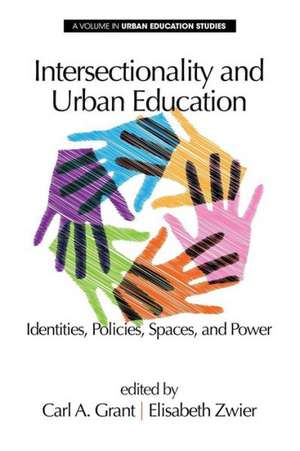Intersectionality and Urban Education
Editat de Carl A. Grant, Elisabeth Zwieren Limba Engleză Paperback – 5 aug 2014
| Toate formatele și edițiile | Preț | Express |
|---|---|---|
| Paperback (1) | 394.57 lei 6-8 săpt. | |
| Information Age Publishing – 5 aug 2014 | 394.57 lei 6-8 săpt. | |
| Hardback (1) | 590.56 lei 6-8 săpt. | |
| Information Age Publishing – 5 aug 2014 | 590.56 lei 6-8 săpt. |
Preț: 394.57 lei
Nou
Puncte Express: 592
Preț estimativ în valută:
75.50€ • 79.19$ • 62.85£
75.50€ • 79.19$ • 62.85£
Carte tipărită la comandă
Livrare economică 01-15 aprilie
Preluare comenzi: 021 569.72.76
Specificații
ISBN-13: 9781623967321
ISBN-10: 1623967325
Pagini: 332
Dimensiuni: 156 x 234 x 18 mm
Greutate: 0.47 kg
Editura: Information Age Publishing
ISBN-10: 1623967325
Pagini: 332
Dimensiuni: 156 x 234 x 18 mm
Greutate: 0.47 kg
Editura: Information Age Publishing
Notă biografică
Carl A. Grant, University of Wisconsin - Madison, USA. Elisabeth Zwier, Universidad Pedagogica Nacional Francisco Morazan, Honduras.














